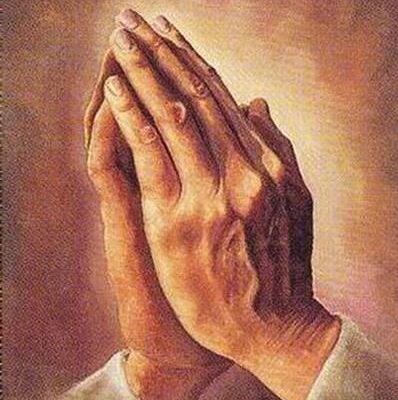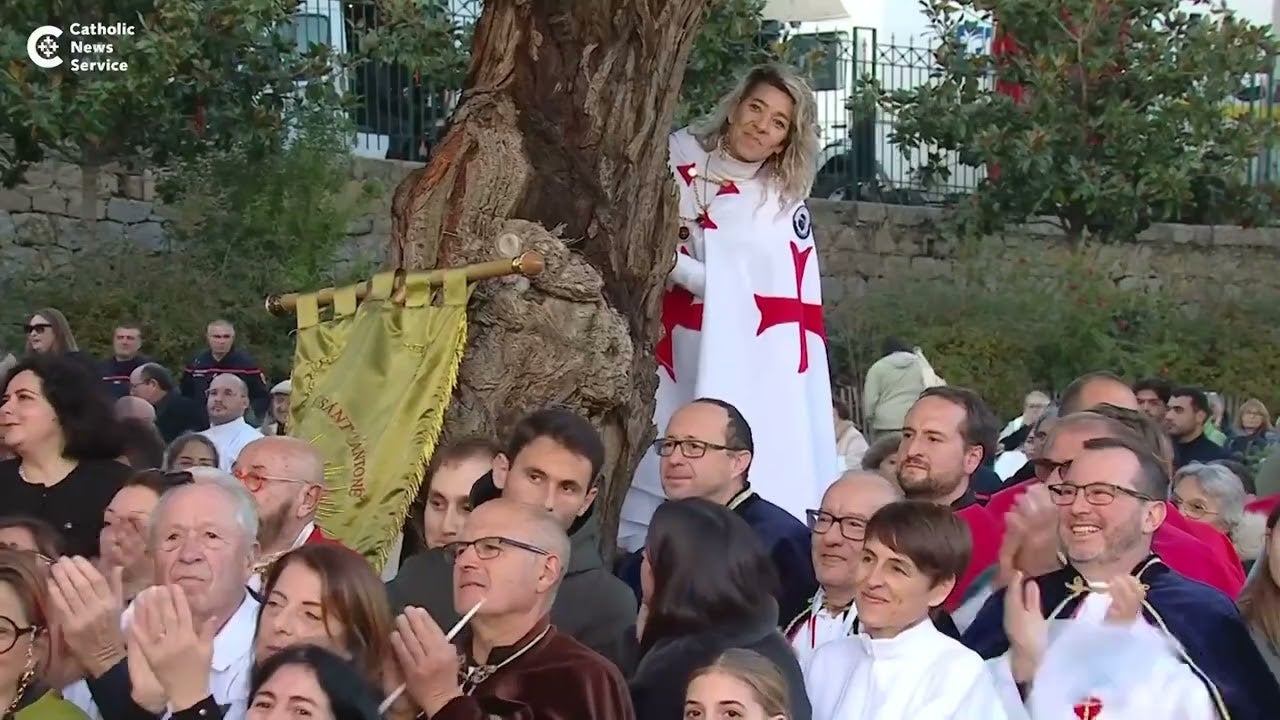AJACCIO, France (CNS) — As Pope Francis became the first pope to celebrate Mass on the French island of Corsica Dec. 15, the usual excitement of an open-air Mass with the pope was combined with the flair and pageantry of a Renaissance fair.
Throngs of Corsicans, dressed in medieval outfits and carrying banners depicting Marian images, saints and crosses, processed into Ajaccio’s Austerlitz Square for Mass with the pope.
Seated below a towering statue of Napoleon Bonaparte, born on the island in 1769, and flanked by Corsica’s various confraternities — Catholic lay associations centered around religious devotions and charitable works — the pope said the devotional groups are an example to modern society of “generously serving our neighbors by works of spiritual and corporal mercy.”
As the world becomes increasingly dominated by feelings of distrust and anxiety, expressions of popular piety such as those promoted by the Corsican confraternities bring Christians closer to their communities and ultimately to God, Pope Francis said.
When caught up in an attitude of worldly concerns, people “don’t know how to wait with the Holy Spirit,” looking to the future with diffidence rather than hope, he said at the Mass with an estimated 7,000 people.
In a world that encourages thinking “constantly of ourselves and our own needs,” the pope urged Christians to find solace in the words of St. Paul to the Philippians: “Do not worry about anything.”
“Stop being distressed, disappointed or sad; how widespread are these spiritual ills nowadays, especially in places where consumerism reigns,” he said. “Such societies grow old; they remain unsatisfied, since they no longer know how to give. If we live only for ourselves, we will never find happiness.”
Referencing the conference on popular religiosity he attended in the morning, Pope Francis praised practices of popular piety, such as praying the rosary in common and joining confraternities that “actively participate in the liturgy and the church’s prayer, which they enrich with popular songs and devotions.”
Pierre Arnardi, dressed in a medieval white and red tunic along with other members of the “Templiers du Devoir” (Templars of Duty) confraternity, told Catholic News Service that the pope’s trip to Corsica served as a stamp of approval on the work of the island’s confraternities and would encourage them to continue in their mission.
He said confraternities — a pillar of Corsican culture developed in the 16th century by Dominicans and Franciscans ministering on the island — continue to appeal to new generations despite falling rates of religious belief because they use “new words to communicate the same values” that people have always sought to develop, namely love, faith, charity and forgiveness.
Sixteen-year-old Cyrielle said she felt privileged to see the pope in her hometown, a “once in a lifetime experience.”
“
A native of Corsica, where some 80% of the population is Catholic, Cyrielle told CNS that religious practice on the island is different from the rest of France since here, “parents really transmit the faith to the next generation.” Ultimately, she said, Catholicism is “something that unites all of Corsica.”
While the sun fell over the sea, casting golden rays on the Corsican hills, the pope, vested in pink for Gaudete Sunday — the third Sunday of Advent — said that Christians must develop a “joyful expectation” for the coming of the Lord rather than fall into an attitude of “suspicion.”
“Our joy is not a fleeting consolation that helps us to forget life’s sorrows, no, it is not illusionary” he said, rather “it is the fruit of the Spirit, born of faith in Christ the savior” and is cause for celebration.
Pope Francis also commented on the many children he saw during his one-day trip to Ajaccio, saying the only place he had seen more kids was during his trip to Timor-Leste.
“Have children, have children,” he said, “this will be your joy and your glory.”
Sporting a joyful smile among the faithful in the square was Clotilde Girod, who recently moved to Corsica from Paris to discern a vocation with a recently established religious order.
She told CNS that the pope’s unexpected decision to come to Corsica was a “sign” that she made the right choice in leaving Paris to explore religious life and that she was struck by the island’s “great religious fervor.”
After Mass, the pope met with French President Emmanuel Macron at the airport before embarking on his 50-minute return flight to Rome. The president gave Pope Francis a book on the Cathedral of Notre Dame in Paris.
In their meeting, the pope and Macron discussed the devastating cyclone on the French island of Mayotte, the war in Ukraine, the need for an immediate ceasefire in Gaza and expressed hope for a just political transition in Syria among other issues, according to a statement from the Élysée.
On the flight to Rome from Ajaccio, the shortest flight from any of his international trips, Pope Francis thanked journalists for accompanying him on the brief trip but did not take questions. It is the first time in his nearly 12-year pontificate that he did not hold an airborne press conference.

